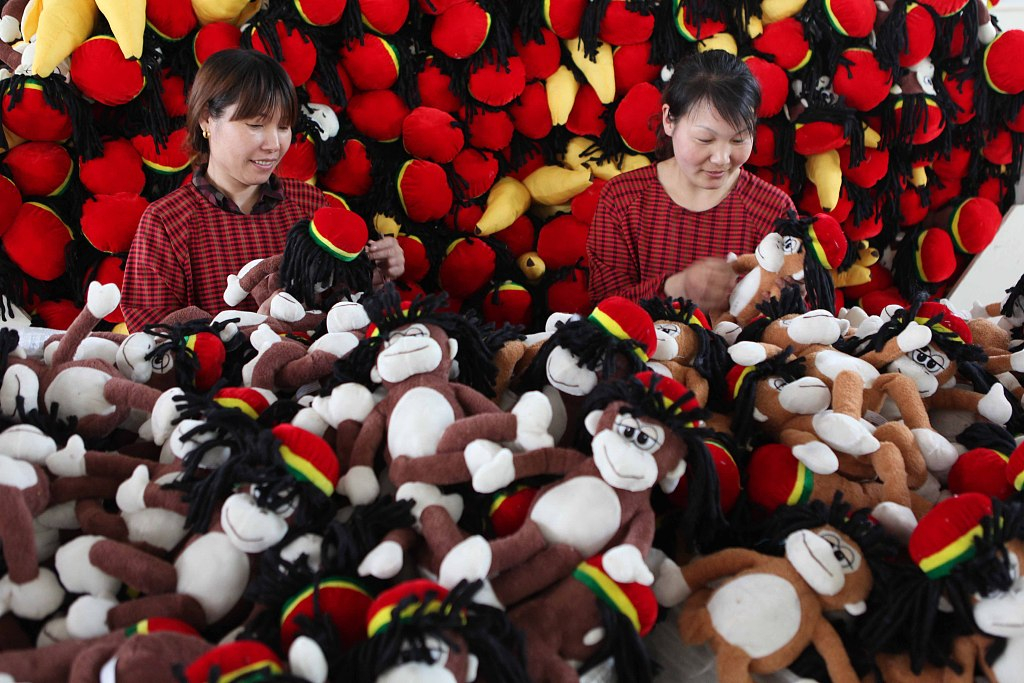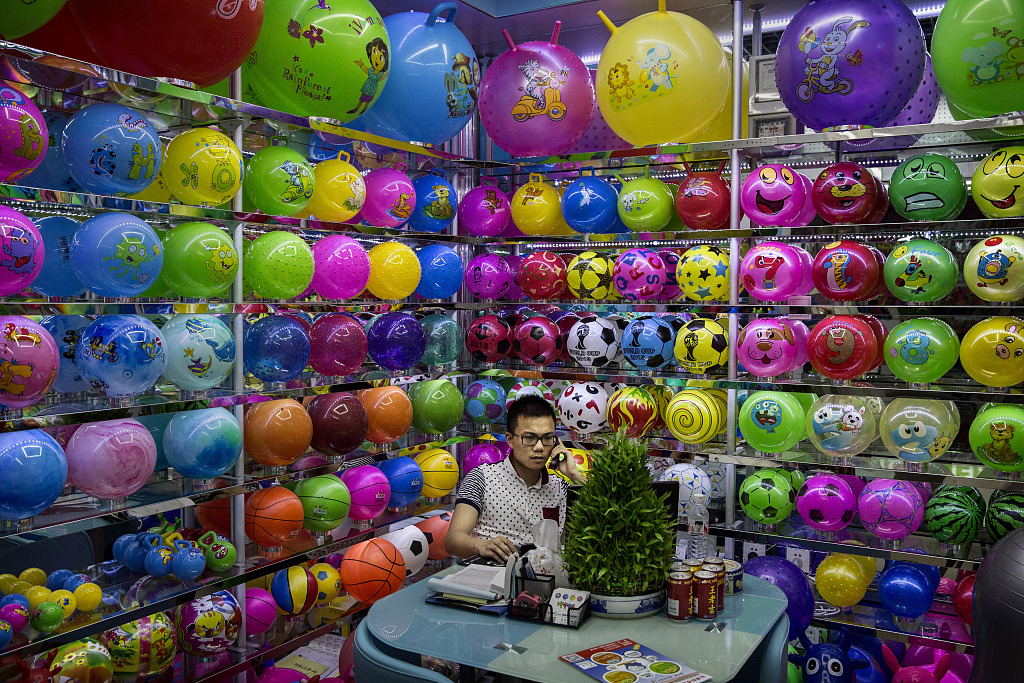
When President Trump ordered American companies to leave the Chinese market and immediately start looking for alternatives to China, few American companies obliged.
Jay Foreman, CEO of Basic Fun!, a toymaker based in Florida, said the company does not have any immediate plan to leave China despite President Trump's order.
"It is just too difficult and costly to move from the highly efficient production and distribution model in China," said Foreman in an email interview with CGTN.
Basic Fun! is the toy company behind the construction toy Lincoln Logs. At present, 92 percent of Basic Fun's products are manufactured and imported from China.
"No other production hub can match the efficiency, quality and safety standards together that have been established over the past 25 plus years," Foreman added.

Women look at plush toys inside a factory that exports to the U.S. /VCG Photo
Though Southeast Asian countries are believed to be the most viable alternative production bases other than China, when it comes to the production of toys, shifting bases to Vietnam or Malaysia is not easy.
Toy production requires sourcing different components, e.g. plastic granules, electronic components. Richard Gottlieb, CEO at New York-based Global Toy Experts, told CGTN that southern China is one large toy manufacturing complex with factories and suppliers in close contact both geographically and personally.
In China's toy production hub, Chenghai District of Shantou City in south China's Guangdong Province, among the 500 toy production companies in Chenghai, around 90 percent specialize in component manufacturing.
U.S. toy companies, on the other hand, have the capacity to conduct simple manufacturing. But as the toys being manufactured get increasingly complex, when they require electronic components, they need to be sourced from outside the U.S., according to Rebecca Mond, vice president of federal government affairs at the Toy Association, during a testimony before the office of the United States Trade Representative.

A Chinese trader waits for customers inside his stall at Yiwu International Trade City. /VCG Photo
On top of that, shifting production away from China may also incur risking the safety of toys – the priority of American toymakers.
It took years for toymakers in China to comply with U.S. safety standards. In 2003, after high-profile recalls where 19 million Chinese-made toys were accused of posing lead poisoning risks to children in the U.S., China passed the regulation that no lead paint shall be used on Chinese-made toys.
Since the majority of toymakers in the U.S. are small business, which, unlike big firms, do not have safety compliance investigations, it took time for them to develop long-lasting trusting relationships with suppliers in China to ensure compliance with safety standards.
"Many American toy business people have long-standing personal relationships with Chinese suppliers; they are friends," Gottlieb from Global Toy Experts said.

People walk through FAO Schwarz toy store in New York City. /VCG Photo
American toymakers' reluctance to leave China speaks to the inseparable nature of American and Chinese businesses in the global supply chain.
The tariff escalation would inevitably affect consumers. Earlier last month, President Trump delayed imposing duties on a series of consumer goods, including toys. The 10 percent tariff will be effective from December 15, possibly in a bid to dampen its impact on holiday sales.
Basic Fun! is already trying to work with production partners to take any extra cost out of the product and distribution plan, said the company's CEO Jay Foreman. And in the longer term, the cost of the tariffs will be passed on to consumers like a value-added tax, leading to a reduction in spending.
"We have just started to penetrate the China consumer market this past year. It is the biggest emerging growth consumer market in the world, and we fear this trade war will set us back many years," said Foreman.
"Trade brings countries together. It shouldn't tear them apart."

Copyright © 2018 CGTN. Beijing ICP prepared NO.16065310-3
Copyright © 2018 CGTN. Beijing ICP prepared NO.16065310-3